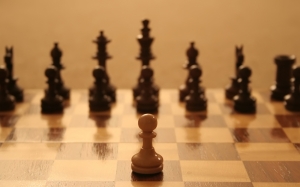
If we talk about the regional powers, the first beneficiary of the new situation was, of course, as mentioned above, Israel, as with no apparent effort on their part, and without any concessions in relation to the Arab-Israeli conflict (the resumption of Palestinian-Israeli negotiations, which are doomed to failure, does not count, and all have forgotten about the occupied Golan Heights), they started to disarm their old enemy. Netanyahu can dream about the disarmament of Hezbollah and about the change of regime in Damascus, achieved through Geneva-2 negotiations, at the very least, being neutral for Jerusalem. If this happens “in a package deal” with the neutralization of Iran’s nuclear program, it will be a triumph!
The position of the Turkish leader Recep Tayyip Erdoğan is much worse. The Turkish Prime Minister is not to be envied. He, as well as the King of Saudi Arabia Abdullah, staked on the victory of the Syrian opposition, which is formed mostly by members of the Muslim Brotherhood. Not only has the war, in which he wanted to achieve these goals, failed to take place, but also the U.S. turned against his brethren in Egypt, and al-Assad’s forces successfully destroyed their main forces in Syria to the delight of the Saudis. In general, the shares of the “brethren” in the region dramatically fell, not only have they been removed from power, dismissed and banned from Egypt, but they were also subjected to persecution in the whole of the Middle East. If in Syria they are being hit by Bashar al-Assad, in the United Arab Emirates, Saudi Arabia, and Kuwait, they are pursued by the friendly monarchies!
As a result, Ankara, which has made itself the base of all the Syrian opposition, is forced to close the border with Syria, where on the outskirts of the Turkish cities there is fighting between the conventionally secular Syrian Free Army of S. Idris and all kinds of jihadists, who seem to have the upper hand among all the mass of combatants, fighting against Bashar al-Assad. We should not exclude the fact that soon, T. Erdoğan will have to remember Assad’s interview with the Turkish channel “Khalq”, given on October 5, in which he anticipated problems for Turkey and compared the terrorists, supported by the Turkish prime minister with scorpions, which in the end will bite those who lure them.
Like any politician who got lost in his game, he will soon have to pay the promissory note, which will be handed over to him by the Kurds, the Alevis, and the secular society. The latter, by the way, as it was in Egypt, may raise the question of return to Kemalism, as the only possible answer to the challenges of a multi-ethnic and multi-religious Turkish society. The most interesting is that this will find support in the West, as well as among their current friends in the Gulf, who may prefer the traditional Turkish military rule to the doubtful society of ikhvanists, who are losing their positions in the Middle East. And the opening of Armenian churches in Diyarbakir would then not be enough to save the power of T. Erdoğan’s party.
As for the regime in Damascus, it has not lost the battle yet, although it lost its main argument of deterrence in the face of external aggression. However, it has time to destroy the jihadists and it seems, that Washington and many European capitals do not oppose this idea. The next diplomatic game, the conference in Geneva, will be much more difficult for the Syrian regime, as it is not clear how Tehran, will behave, it is seeking dialogue with Washington to solve its economic problems, and find a way out of isolation in the region, but we have to wait and see what will happen.
Saudi Arabia considers itself the kingdom of the losers, of course. It heavily “invested” into the overthrow of Bashar al-Assad and into the support, including financial, of the U.S. military operation against Syria (along with other GCC countries), but suffered a crushing political and diplomatic defeat, probably the first utter defeat in its history. Its position, as well as the position of France, was not taken into account by anyone. To make matters worse, they started the US- Iran dialogue, which threatens to be quick, constructive and lead to very positive results in bilateral relations. This will bring down the whole strategy that the Saudi monarchy has built up during the recent decades.
So far, Riyadh does not want to admit their failure and rely on their lobbyists in Washington. The chemical weapons deal is called a flawed deal, and the forthcoming Geneva Conference on Syrian matters has been in advance called the “Munich” deal. However, the great Muslim festival of Eid al-Adha, which falls on the 10th day of the 12th month of the Muslim lunar calendar Dhul-Hijjah, that is on October 15 this year, provides an opportunity not only to taste the sacrificial lamb, but also to think about the possibility of a more constructive interaction with the international community, which, as it seems has moved in the opposite direction…
Poghos Anastasov, political scientist, orientalist, especially for the online magazine New Eastern Outlook.
